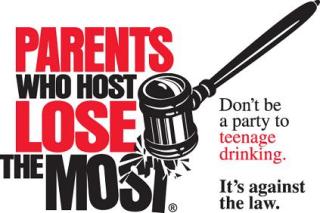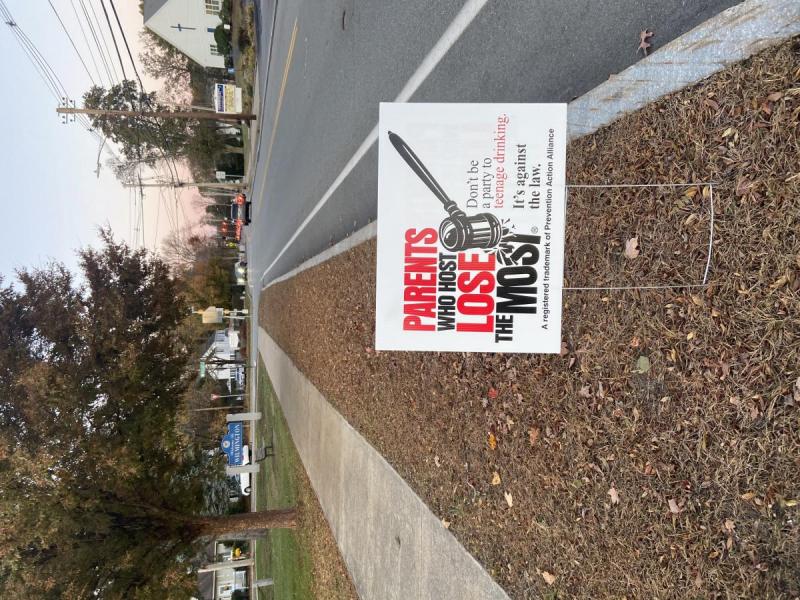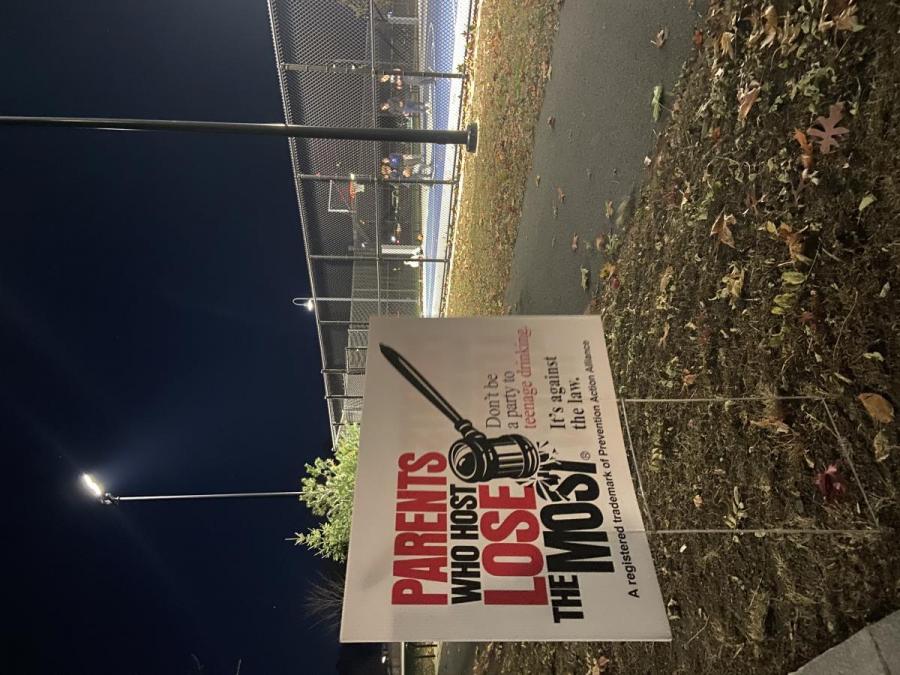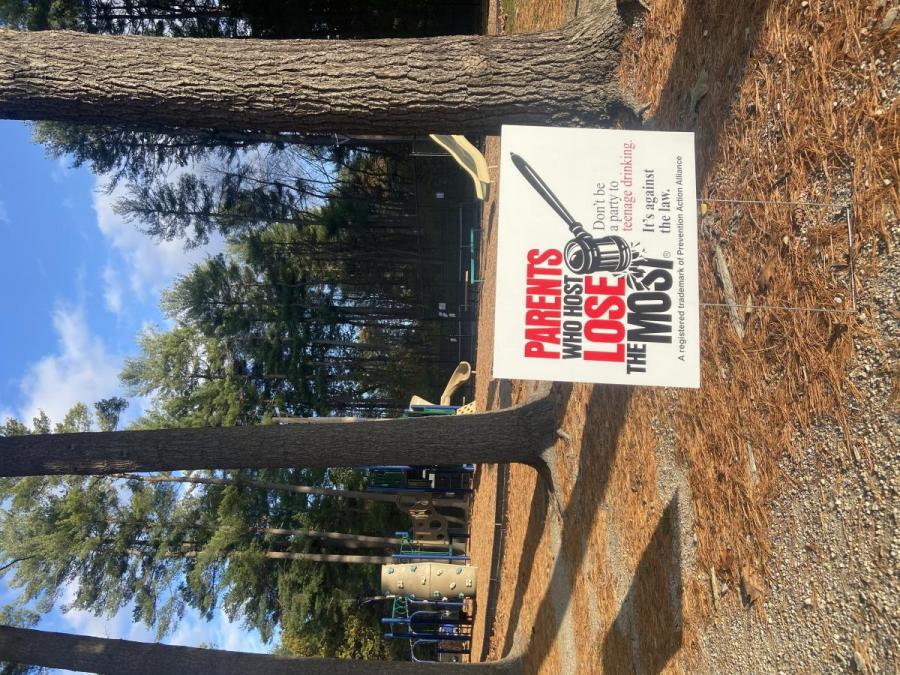Parents Who Host Lose the Most

Social Hosting Laws in Massachusetts
"Whomever furnishes alcohol to a person under the age of 21 years of age shall be punished by: Fine up to $2,000 or Imprisonment for up to a year or both. Furnish shall mean to knowingly or intentionally supply, give, provide to, or allow to possess alcoholic beverages on premises or property owned or controlled by the person charged". M.G.L. c. 138, s. 34.
WSAC seeks to educate parents, guardians, and youth on how to take preventative steps to reduce substance use and mental health concerns later in kids lives.
There are legal consequences to providing minors with alcohol and other illicit substances, but there are also significant health and safety concerns for your child/children as well. #beinformed
Importance of Youth Developing Decision Making Skills
We want to make sure parents and kids are making safe and healthy choices not only during COVID-times, but to teach our youth life-long good decision making skills. Having informed conversations with your youth can positively impact the rest of their lives when they are meet with having to make challenging decisions. Although kids are under parent's roofs now, we need to empower them to make thought-out decisions for when they seek independence in housing, careers, schooling, ect.
Some facts about underage drinking
- The CDC estimates that on average alcohol is a factor in the deaths of 4,258 young people under the age of 21 per year (motor vehicle crashes, homicides, alcohol poisoning/falls/burns/drowning, suicides)
- Drinking alcohol can cause youth to have accidents and get hurt - in 2011 there were about 188,000 youth (under 21 years of age) whom visited an emergency room for alcohol-related injuries.
- Drinking causes impaired judgements which can lead to poor decisions and consequential risky behaviors including drinking and driving, sexual activity (willing and non willing), and aggressive or violent behaviors.
Check out more here
Model Health & Responsible Decisions
Let's be encouraging healthy and responsible decisions in our youth - including a game of pick up basketball on a Friday night @ Yentile rather than hosting a party with alcohol.
Youth can and will excel when supported by care givers who encourage them to make informed and wise decisions. Giving your child a ride to play a sport or have a craft night is a much better decision than having to pick them up from a party which has underage drinking later in the evening.

Risk Factors of Underage Drinking
There are many risk factors associated with underage drinking. We've outlined some below, but the list is extensive. Make sure to use these points to help guide conversations with your child/children around their increased risk factors or areas of their history they might need to know about.
Risk Factors:- Psychiatric Disorders (Mental Health)
- Childhood behaviors
- Trauma
- Biological Markers/Genetics
- Suicidal Behaviors
Got questions about how to have these conversations or need help facilitating them? Reach out to Samantha Reif @ 978-447-2296 or email for confidential assistance.
For more information check out these data informed and nationally recognized resources: Underage Drinking Risk Factors & Consequences Alcohol AlertHow to host a safe and responsible teen party:
- Help your child plan the party, have a guest list
- Put your phone number (parent/guardian) on an invitation/text so other parents can check-in with you
- Set and maintain rules ahead of time (no alcohol, tobacco, drugs)
- Supply non-alcohol beverages and lots of food and snacks
- Have an activity or two pre-planned for youth to look forward to (movie night, karaoke, game night)
- Secure all forms of alcohol, firearms, prescription pills, and other potentially hazardous items
- Make regular, but natural, visits to the party area (with sensitivity to teens need for some independence and privacy)
- Invite other parents over to be there for more supervision or to just have extra support for safe parties
For some more great ideas to do at a teen party that don't involve alcohol click here
Parents/Guardians
Make sure to pick up on warning signs which can be great indicators and intervention points with your youth. Asking questions and letting your child know you're concerned can open the conversation up, reduce future problematic behaviors, and allow them to engage in helpful strategies (professional or familial).
Some risk factors include:
- Behavioral changes (unusual behaviors, changes in sleep/appetite, more secretive)
- Differences in school performance/attendance
- Social indicators (changes in peer groups, engagement levels)
- Quitting previously identified hobbies (sports teams, art, theater, etc.)
- Personality changes (irritability, mood changes, defensiveness, withdrawal, increased sadness)
REMEMBER: Be a parent, not a peer
Kids need trusted and present parent(s)/guardian(s), be a good role model. Your time to be their friend will come once you've taught them how to make smart and informed decisions (normally around early to mid 20s you can transition into being their friend if they've been nurtured and matured into young adults who make healthy and safe decisions for themselves)
How to talk to kids about alcohol
Curious on how to talk to kids after underage drinking has occurred? Think about when you were a teen and try to put yourself in the youth's shoes - be compassionate, empathetic, and nurturing. Provide concrete education if the youth has questions or is not understanding risk factors appropriately. In a calm, non-judgmental, and caring way, try using some of these taking points:
1. "Let's talk about how you got alcohol and how it makes you feels. What does drinking help you with? What does drinking make easier or not as apparent for you?" (i.e. - "it makes my anxiety better" or "it helps me be more social")
2. "Your friends are wrong - everyone is not doing it. It's illegal and harmful. What questions can we try to better understand?" (i.e. - "How is alcohol bad for me" or "Why is it legal if you're 21?")
3. "This is a critical time in your growth and your brain is still developing. I'd like to see you have the best chance at a healthy and balanced life. Could we practice ways to say no next time your approached about drinking?" (i.e. role play and use scenario based practice to help your child have courage to respond with safe and informed decisions)
Make sure to prepare yourself for any answer or question your child could respond with. If you don't know something or don't know how to respond express that to your child and ask them "would it be okay if we figured that question out together? I'm not sure I have enough information to answer right now" - this not only allows for your child to be part of the process of learning but also uses modeling behavior to show your child how to get through challenging (or possibly peer-pressure related) conversations in the future when with peers.

So why do adolescents drink and use other drugs/substances?
There are 2 popular reasons:
- Adolescents brain's do not fully develop until their mid 20s, and until then their maturing brains are prone to risk-seeking, challenging, and new experiences to find ways to insert their desire for independence. Alcohol and drug use is an area of popular "trials" but most youth don't understand the impacts and potential long-term consequences of alcohol and drug use on their developing brain or on their behaviors while intoxicated.
- Young people are impacted by peer pressure, desire for increased independence, and stress. Any one of these can lead to a youth engaging in risky behaviors with alcohol without being fully informed or willing/wanting to engage.
So, what can you do as a parent/guardian/care giver?
- Be informed about risk factors which can impact a youth's decisions to start testing out alcohol and/or drugs.
- Engaged in ongoing and open dialogue with your youth from a young age (as early as 4th grade) about substances and their negative impacts for youth. These conversations should be educational, non-judgmental, and in a comfortable non-confrontational setting for the youth.
- Name the stressors/challenges your youth may be experiencing and allow them a safe place to talk about them
- Observe warning signs in youth
- Be aware of the co-occuring impact mental health and substance use can have. Check-in with your child/children regarding their mental wellbeing to help eliminate potential self-medication they may seek from alcohol and/or drugs.
Planning on being away or out of town and leaving your kids in the home? Consider these steps to make sure your teen and their peers remain safe while you're gone!
- Set and communicate clear rules and standards to be followed while you're gone
- Do not allow underage youth to have unsupervised parties or gatherings
- Remind your child/children of their responsibilities and the consequences of their actions
- Have a relative or responsible adult stay at your home during your absence
- Have your teenager stay with a responsible adult or friend's home with responsible parent home
- Ask a neighbor to check-in on the house while you're gone
- Help guide your child/children to schedule fun activities to engage in while you're gone to keep them busy
- Encourage your teen not to let their friends know you won't be home, this will help reduce peer-pressure friends may put on them to host a party
When Adolescents Throw an Empty House Party
Impacts of Underage Drinking
A youth who drinks alcohol prior to 21 has a 1 in 4 chance of having long-term negative consequences (addiction, psychiatric onset, etc.).
If onset/first drinks can be delayed until at least 21, the individual's risk level falls to 1 in 25 chance of having long-term negative consequences.
Don't host the underage party which could determine the outcome of a child's sobriety and mental health.
